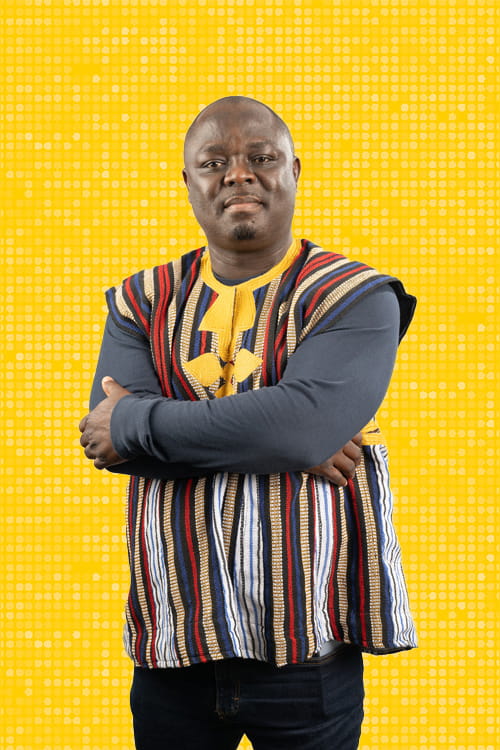
Eric Akuoko, PhD student, science education
Translates values to STEM teaching
“Eric has worked hard to develop as a scholar, while also being an avid representative of UI through international opportunities such as the Stanley award and a scholarship from the NARST professional society to build connections in South Africa.” -Gavin Fulmer, adjunct associate professor
Hometown: Kumasi, Ghana
Faculty mentor/advisor: Gavin Fulmer, adjunct associate professor, Department of Teaching and Learning, College of Education
What is your degree program and anticipated graduation date? PhD in Science Education with planned graduation date of May 2024
Please describe your research: My research principally examines the relationship between a teacher’s beliefs regarding knowledge and learning (Teacher Epistemic Orientation) and type of classroom climate/environment created for knowledge development in science classrooms, which can either be replicative (focused on reproduction and memorization) or generative (focused on critical thinking and creativity). My work focuses on validating theoretical mechanisms and empirical evidence for any assertion about a relationship between teacher beliefs systems, teacher views, or theoretical orientations, and their influence on actual classroom instruction or implementation matrices for knowledge development.
Additionally, my scholarship explores the mediating role and use of intellectual tools (language, arguments, dialogue, etc.) for inquiry-based science instruction and learning.
In simple terms, why does this research matter? My research elucidates new ways of thinking and visualizing science teaching and learning by translating teacher belief systems, theoretical views, values, and teacher personal epistemological understandings into classroom practice. Again, in the context of reform efforts in science education and in line with the dictates of Next Generation Science Standards(NGSS), my research pushes for science teaching and learning to go beyond ‘mere content’ to include the procedural and practices that undergird the processes involved in the development of science knowledge.
How soon after starting at the University of Iowa were you able to participate in research? Right in the first year. As a research assistant on different NSF-funded projects, my mentors and supervisors provided all the support, guidance, and collaboration needed to get started as a researcher and scholar. The big piece was providing opportunities to co-analyze data, co-discuss, and co-write manuscripts during bi-weekly NSF-funded research meetings.
How has being involved in research made you more successful at the University of Iowa? The research opportunities provided by my mentors and supervisors at The University of Iowa have emphasized and increased my confidence and expertise in the research process. Of particular mention is the opportunity they provided for me to co-author and co-present NSF-funded project findings at national and international conferences like AERA, NARST, etc. Additionally, mentor collaborations and provision of useful feedback at every step of the research process have been extremely helpful for my growth and success as a researcher and scholar.
Banner location: Downtown—
